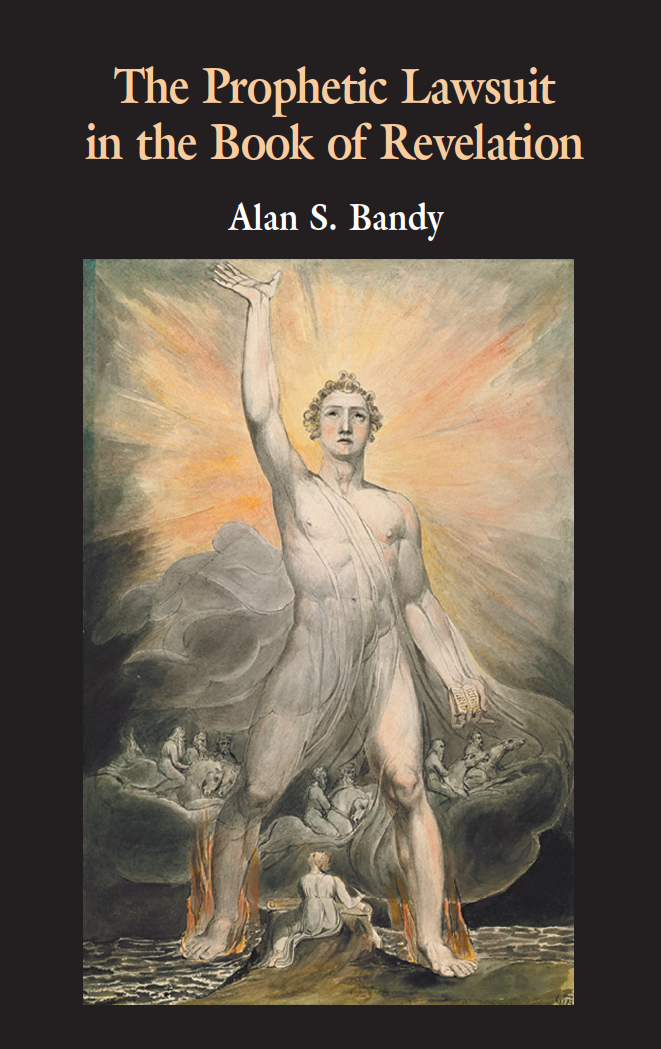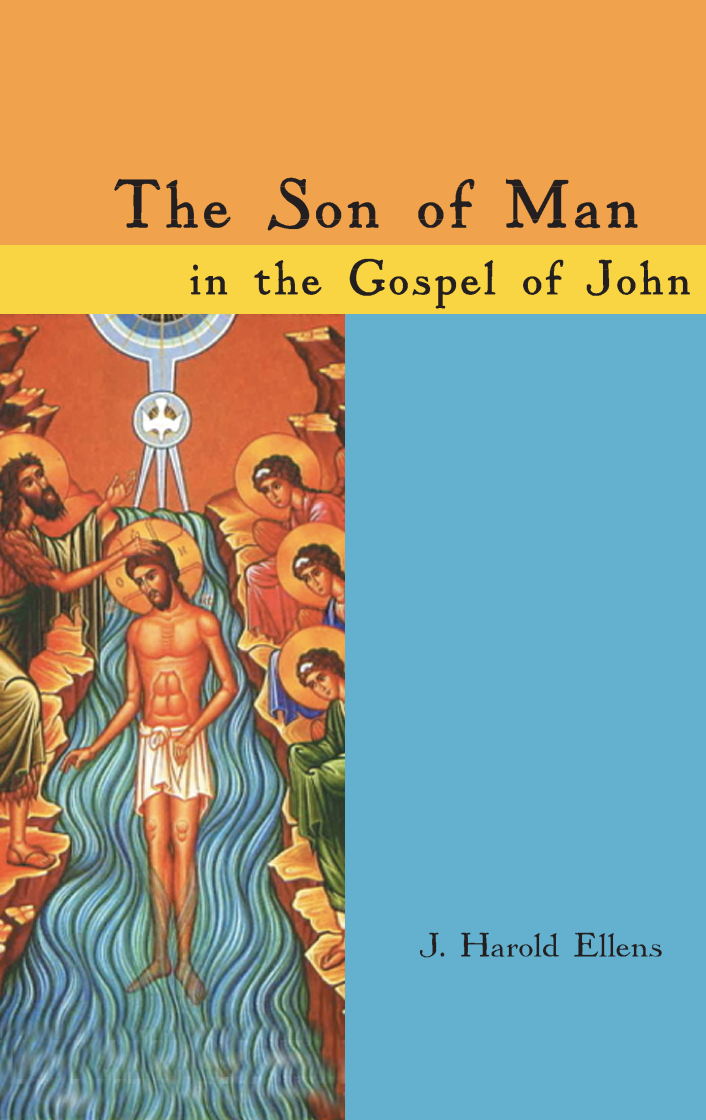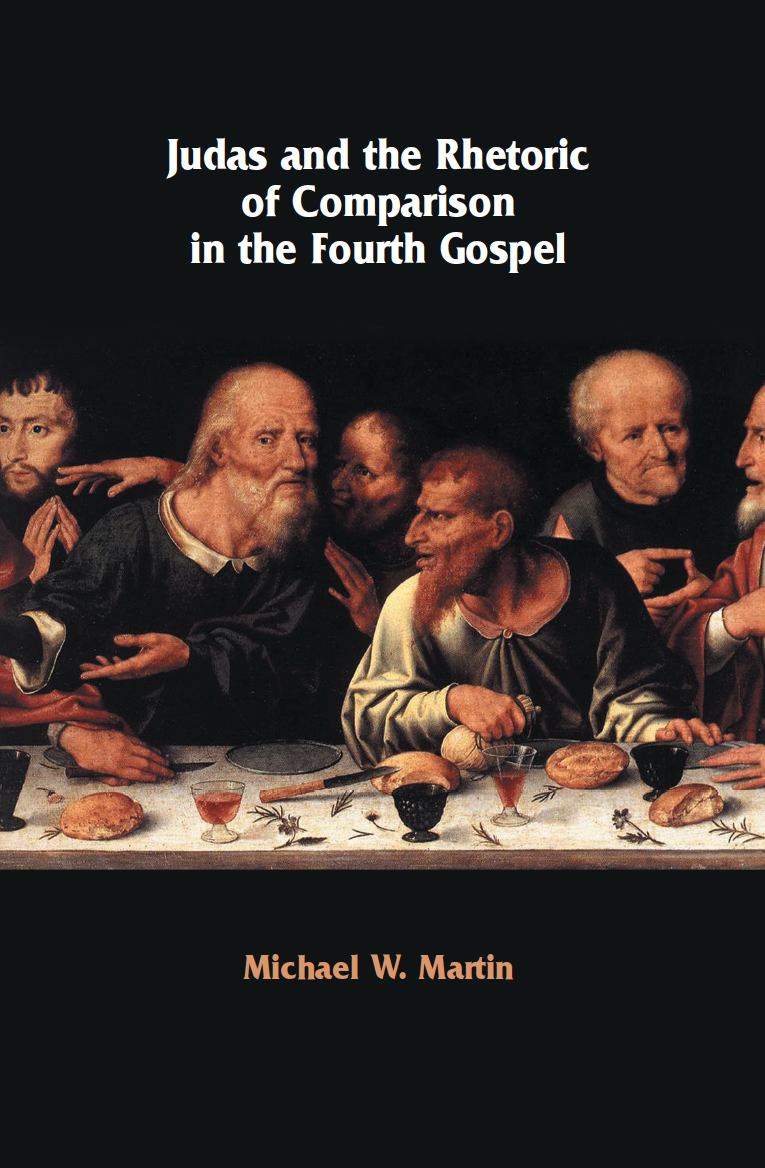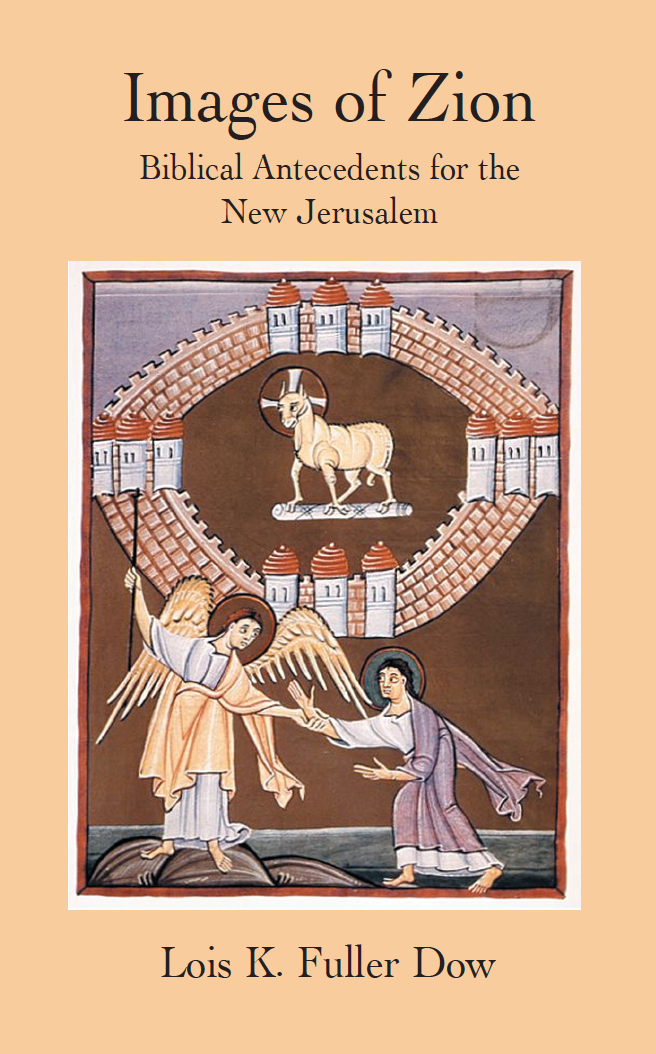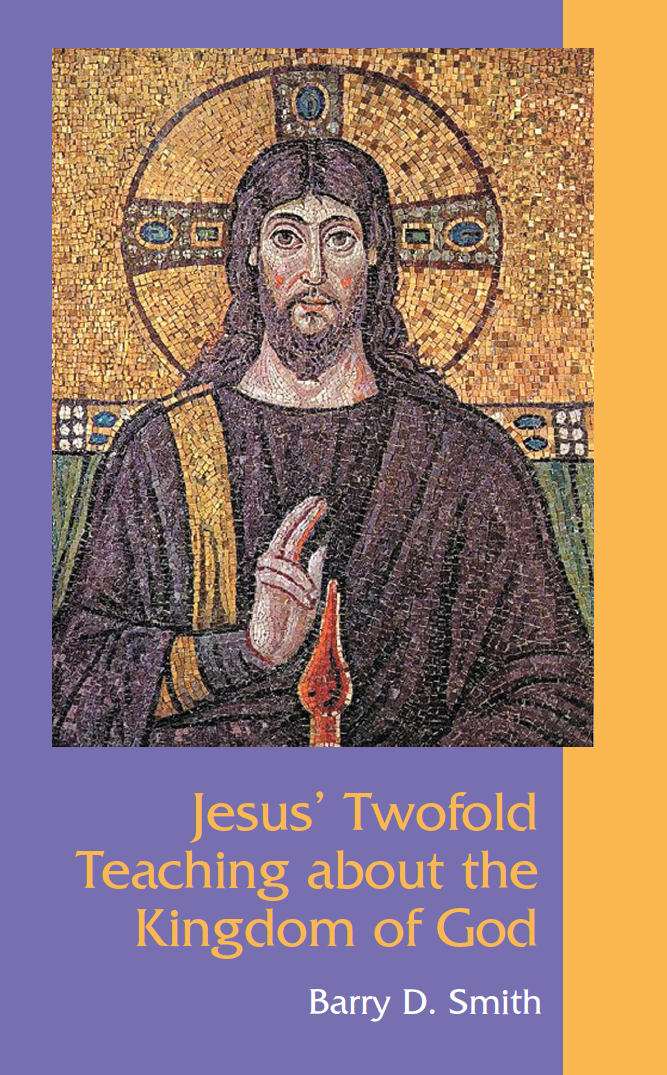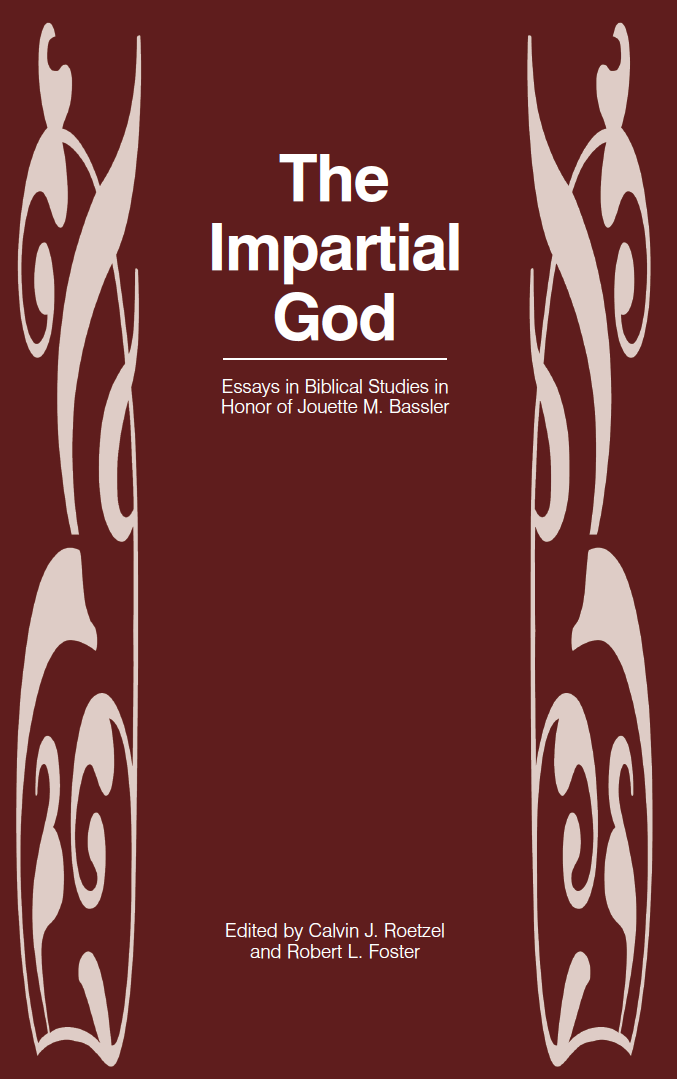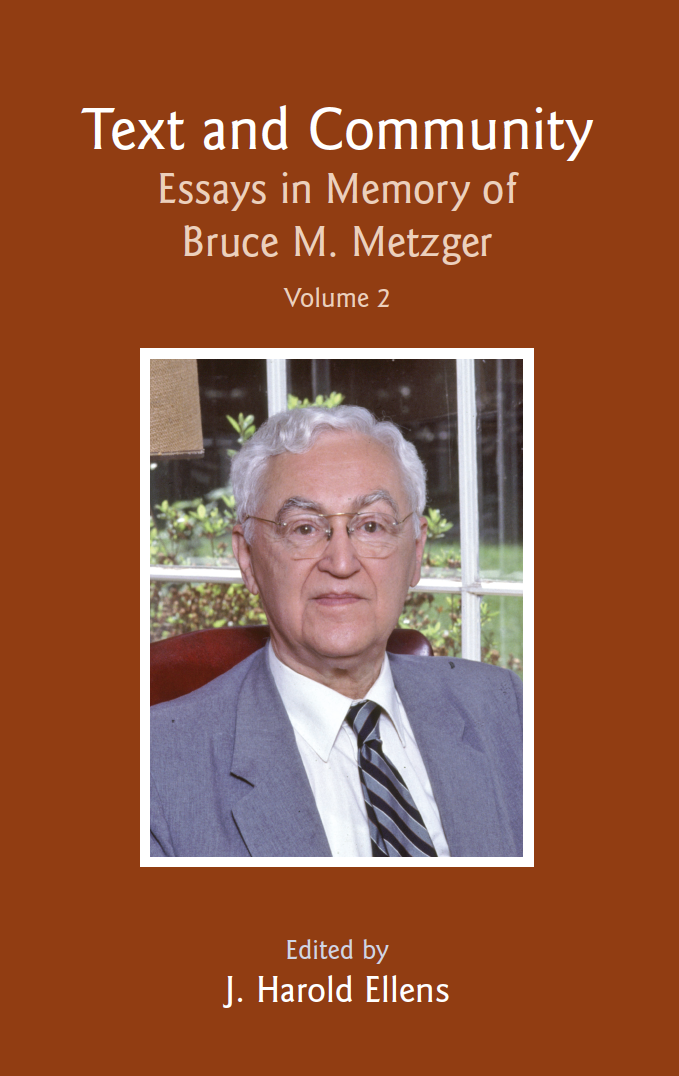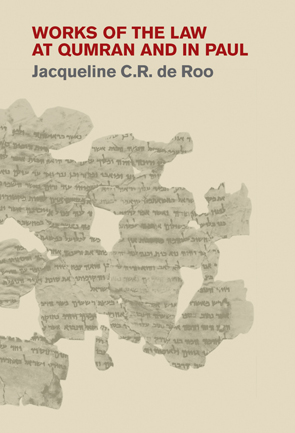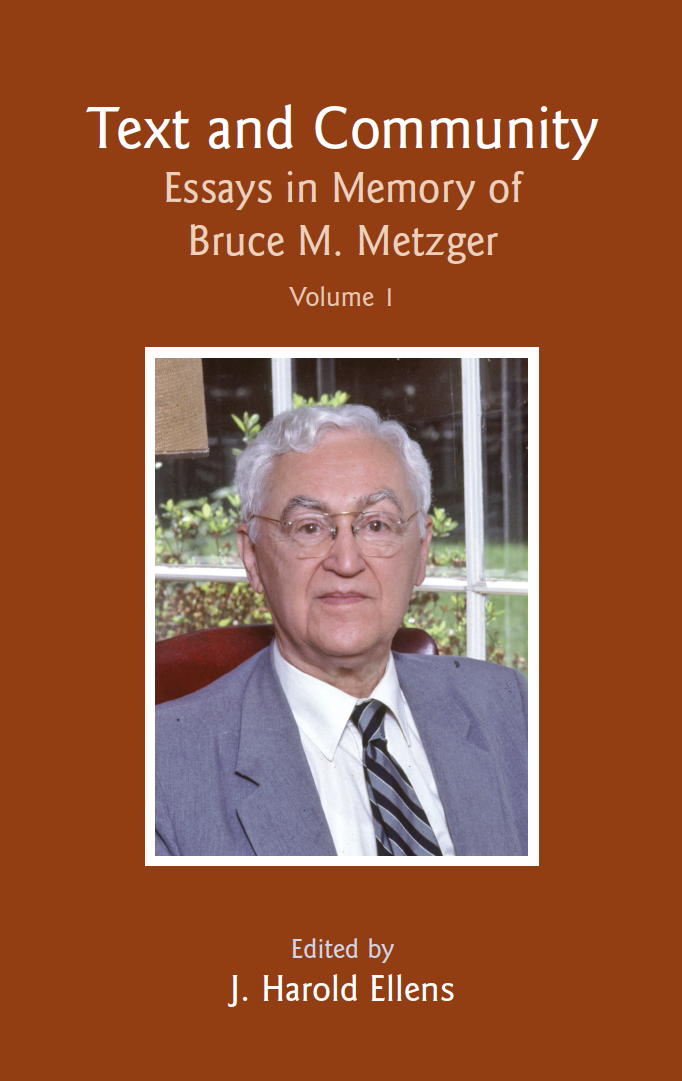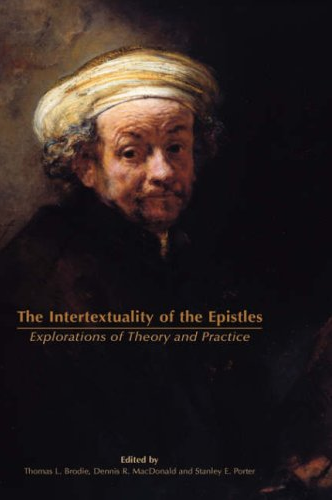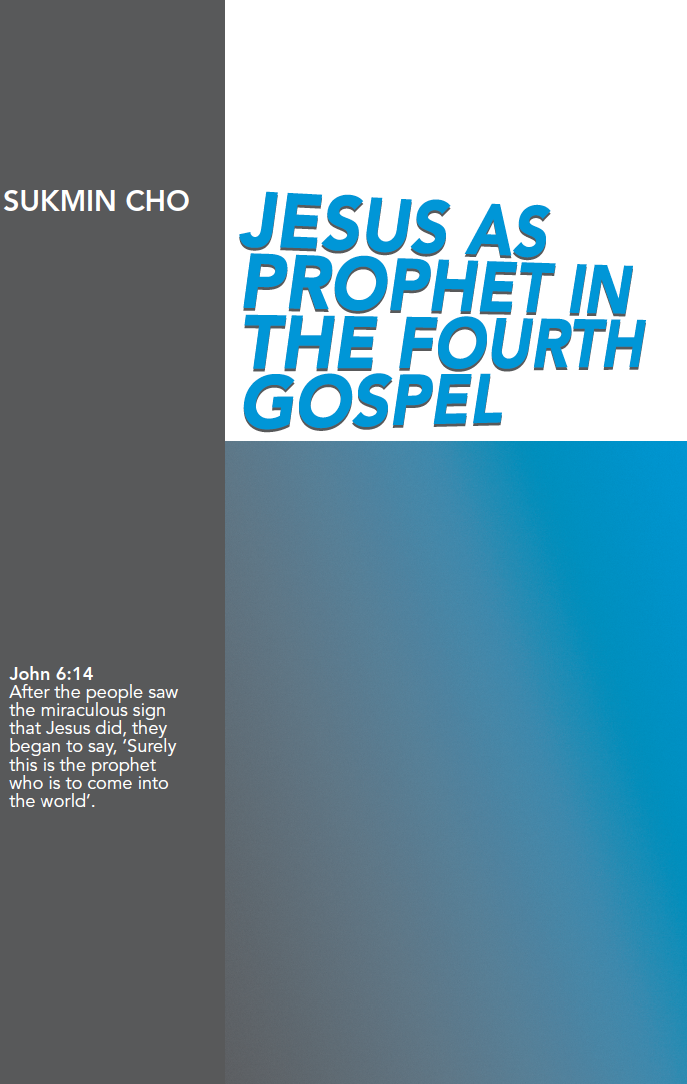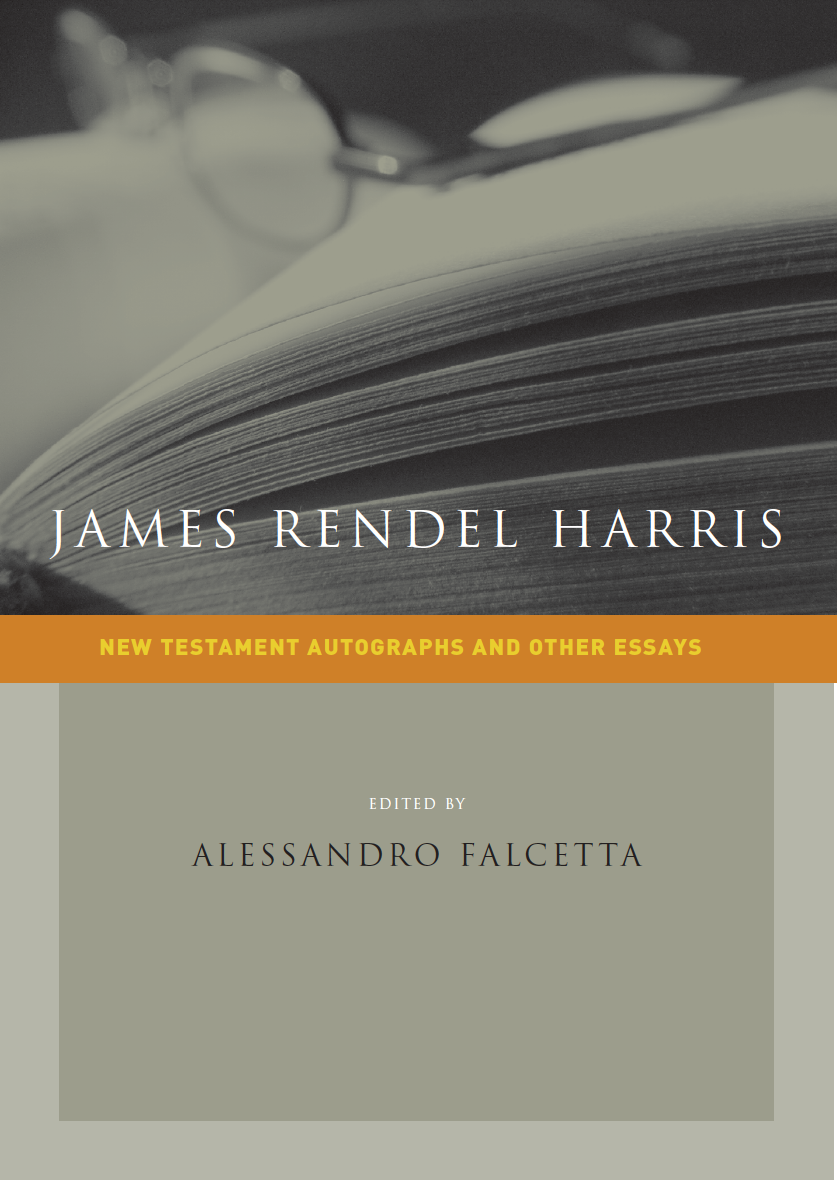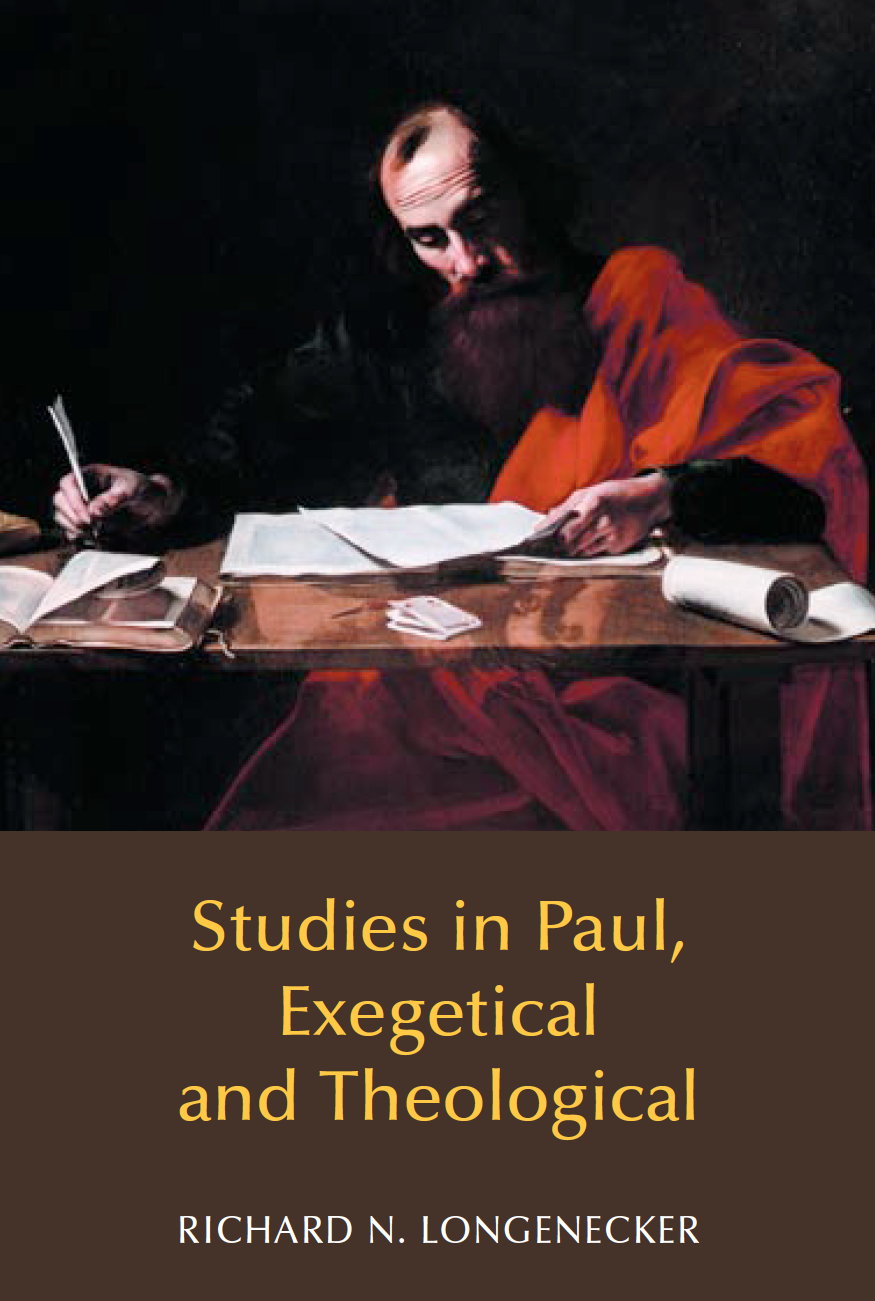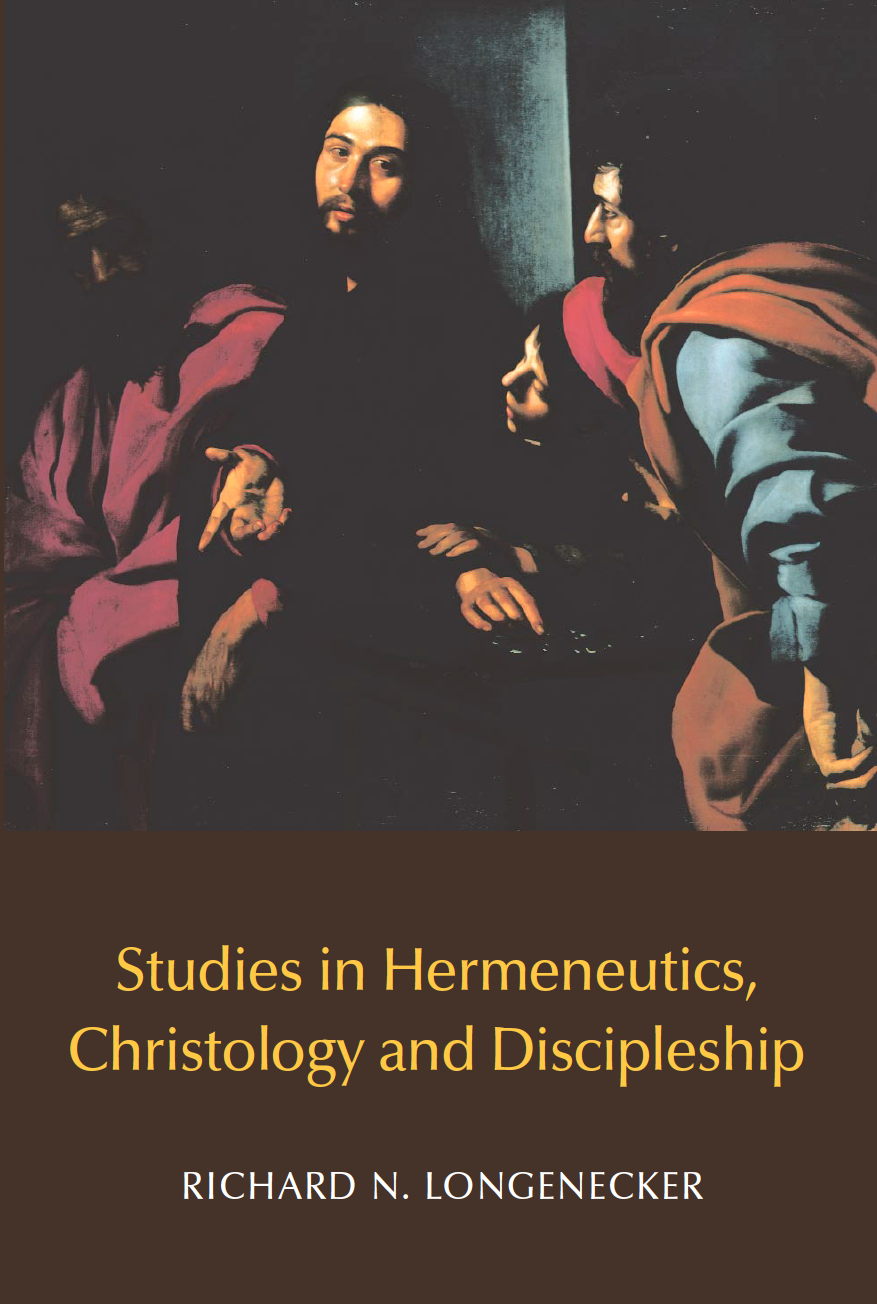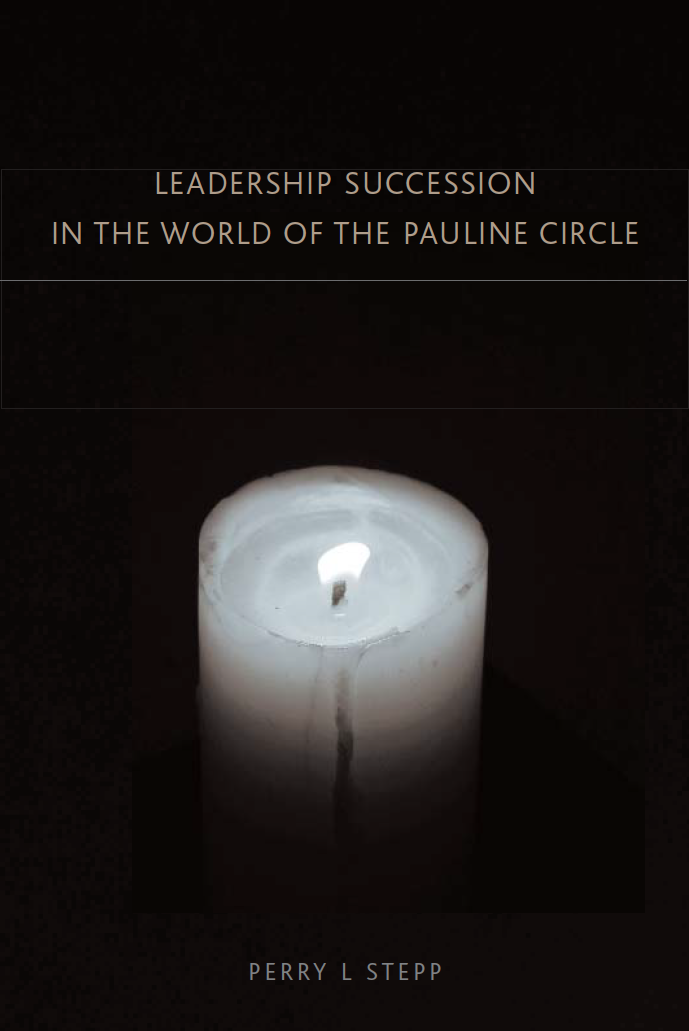The Prophetic Lawsuit in the Book of Revelation
Published: May 2010
£85.00
The language, metaphors and storyline of the Book of Revelation evoke a cosmic law court setting. Juridical metaphors of a legal contest between the faithful witnesses and the 'accuser of the brethren' are intertwined throughout with images of holy war. Although such features have often been noted, this is the first full-length study drawing together the diverse evidence and reading the book through the lens of the controlling metaphor of the lawsuit.
The background of the law court setting in Revelation is the Old Testament prophetic genre of the lawsuit, sometimes conceived of as a lawsuit against God's own people for their violations of the covenant, sometimes as a lawsuit against foreign nations for their oppression of Israel. Prophetic lawsuit language often culminated in oracles of salvation announcing the vindication of the righteous.
Reading Revelation with an awareness of the prophetic lawsuit motif will enable readers to interpret the juridical images as consistent features in the overall narrative. The purpose of Revelation's narrative is to depict the sovereign judge of the universe rendering ultimate justice through the condemnation of the wicked and the vindication of the saints. This message of vindication is intended to encourage Christians in Asia Minor at the end of the first century not to capitulate or even accommodate to the socio-religious norms of their time.
The Prophetic Lawsuit in the Book of Revelation
£85.00
The language, metaphors and storyline of the Book of Revelation evoke a cosmic law court setting. Juridical metaphors of a legal contest between the faithful witnesses and the 'accuser of the brethren' are intertwined throughout with images of holy war. Although such features have often been noted, this is the first full-length study drawing together the diverse evidence and reading the book through the lens of the controlling metaphor of the lawsuit.
The background of the law court setting in Revelation is the Old Testament prophetic genre of the lawsuit, sometimes conceived of as a lawsuit against God's own people for their violations of the covenant, sometimes as a lawsuit against foreign nations for their oppression of Israel. Prophetic lawsuit language often culminated in oracles of salvation announcing the vindication of the righteous.
Reading Revelation with an awareness of the prophetic lawsuit motif will enable readers to interpret the juridical images as consistent features in the overall narrative. The purpose of Revelation's narrative is to depict the sovereign judge of the universe rendering ultimate justice through the condemnation of the wicked and the vindication of the saints. This message of vindication is intended to encourage Christians in Asia Minor at the end of the first century not to capitulate or even accommodate to the socio-religious norms of their time.
The Son of Man in the Gospel of John
Published: May 2010
£50.00
J. Harold Ellens here explores the intriguing question of why, in John's Gospel, Jesus called himself the 'Son of Man', virtually the only title he gave himself in the Fourth Gospel, and a title virtually no one else ever used for him.
In Second Temple Judaism there were several traditions about the Son of Man. In Ezekiel the term 'son of man' means 'mere mortal'. In Daniel, on the other hand, the Son of Man is a heavenly figure with authority to destroy evil and establish God's reign on earth. In 1 Enoch, the Son of Man is a human being appointed by God as an eschatological judge. In Matthew, Mark, and Luke the Son of Man is a man who builds the kingdom of God on earth. Jesus also depicts himself as the Suffering Servant, who will die at the hands of the Jerusalem authorities and be exalted by God to heavenly status as the final Judge.
In this monograph the focus is on the Son of Man in the Gospel of John. There is nothing of the Ezekiel tradition in John, but Daniel's heavenly Son of Man is evident in the mind of this Gospel's author, who envisages him as divine, of heavenly origin. Indeed, in John the Son of Man is the divine Logos, God's revelation of himself. As against the Enochic and Synoptic Son of Man, the Johannine Son of Man is not a human being who is exalted to heaven and who will come again as the final Judge. He is a divine figure who descends to earth to remove evil now, by forgiving sins and by establishing God's universal reign.
The Son of Man in the Gospel of John
£50.00
J. Harold Ellens here explores the intriguing question of why, in John's Gospel, Jesus called himself the 'Son of Man', virtually the only title he gave himself in the Fourth Gospel, and a title virtually no one else ever used for him.
In Second Temple Judaism there were several traditions about the Son of Man. In Ezekiel the term 'son of man' means 'mere mortal'. In Daniel, on the other hand, the Son of Man is a heavenly figure with authority to destroy evil and establish God's reign on earth. In 1 Enoch, the Son of Man is a human being appointed by God as an eschatological judge. In Matthew, Mark, and Luke the Son of Man is a man who builds the kingdom of God on earth. Jesus also depicts himself as the Suffering Servant, who will die at the hands of the Jerusalem authorities and be exalted by God to heavenly status as the final Judge.
In this monograph the focus is on the Son of Man in the Gospel of John. There is nothing of the Ezekiel tradition in John, but Daniel's heavenly Son of Man is evident in the mind of this Gospel's author, who envisages him as divine, of heavenly origin. Indeed, in John the Son of Man is the divine Logos, God's revelation of himself. As against the Enochic and Synoptic Son of Man, the Johannine Son of Man is not a human being who is exalted to heaven and who will come again as the final Judge. He is a divine figure who descends to earth to remove evil now, by forgiving sins and by establishing God's universal reign.
Judas and the Rhetoric of Comparison in the Fourth Gospel
Published: Apr 2010
£50.00
Why is Judas repeatedly contrasted in the Fourth Gospel with other characters, and why is he repeatedly depicted in these comparisons as the consummate defector? The answer to these questions, Martin argues, lies in the ancient rhetorical theory and practice of 'syncrisis', the formal, rhetorical comparison of persons or things.
Surveying the Graeco-Roman textbooks of composition that taught this device and the ancient authors who used it, Martin shows that syncrisis was often used to juxtapose 'genera' or 'groups' via their 'outstanding' or 'extreme' members. In such comparisons, a two-level drama unfolds, with the verdict of superiority being applicable both to the individuals being compared and to the groups they represent. The Johannine Judas, Martin argues, is featured in this manner of comparison over against Peter, and his portrayal in the Gospel as the consummate defector points, along with several other clues, to his identity as a representative of the schismatics who seceded from the Johannine community and who are described in 1, 2 and 3 John.
Judas and the Rhetoric of Comparison in the Fourth Gospel
£50.00
Why is Judas repeatedly contrasted in the Fourth Gospel with other characters, and why is he repeatedly depicted in these comparisons as the consummate defector? The answer to these questions, Martin argues, lies in the ancient rhetorical theory and practice of 'syncrisis', the formal, rhetorical comparison of persons or things.
Surveying the Graeco-Roman textbooks of composition that taught this device and the ancient authors who used it, Martin shows that syncrisis was often used to juxtapose 'genera' or 'groups' via their 'outstanding' or 'extreme' members. In such comparisons, a two-level drama unfolds, with the verdict of superiority being applicable both to the individuals being compared and to the groups they represent. The Johannine Judas, Martin argues, is featured in this manner of comparison over against Peter, and his portrayal in the Gospel as the consummate defector points, along with several other clues, to his identity as a representative of the schismatics who seceded from the Johannine community and who are described in 1, 2 and 3 John.
Images of Zion: Biblical Antecedents for the New Jerusalem
Published: Apr 2010
£60.00
This study, unparalleled in recent scholarly writing, sets out to examine the broad sweep of the biblical theological tradition about Jerusalem/Zion as the antecedent to Revelation's depiction of the New Jerusalem.
In the Old Testament, Jerusalem/Zion is depicted in both its ideal form and its actual manifestation. In the Psalms (and seminally in the Pentateuch), Zion is depicted as similar to the holy mountains of the gods in Ugaritic religion. But it is not only a dwelling-place of the deity: it is also an earthly city inhabited by humans, and so it becomes a place of community of the divine and the human. The historical books of course make no secret of the realities of life in the far from holy Jerusalem, and, in the prophets also, the city of Jerusalem is the site of wrongdoing and corruption, a place attracting judgment; but equally it is the focus for eschatological anticipations of a renewed community that does fulfil the ideal.
In the New Testament, by its rejection of the Messiah earthly Jerusalem forfeits its role as the true Jerusalem/Zion, which is taken over by Jesus and the church. Occasionally we get glimpses of the belief that the true Jerusalem is in heaven (a development begun in Second Temple literature). The book of Revelation picks up as well from Second Temple literature the theme of the identity of Jerusalem with the Garden of Eden, combining this idea with renewal-of-Zion passages from the prophets to depict the final state of God's people as a place of blessedness, community, life and safety, as well of intimacy with God.
Images of Zion: Biblical Antecedents for the New Jerusalem
£60.00
This study, unparalleled in recent scholarly writing, sets out to examine the broad sweep of the biblical theological tradition about Jerusalem/Zion as the antecedent to Revelation's depiction of the New Jerusalem.
In the Old Testament, Jerusalem/Zion is depicted in both its ideal form and its actual manifestation. In the Psalms (and seminally in the Pentateuch), Zion is depicted as similar to the holy mountains of the gods in Ugaritic religion. But it is not only a dwelling-place of the deity: it is also an earthly city inhabited by humans, and so it becomes a place of community of the divine and the human. The historical books of course make no secret of the realities of life in the far from holy Jerusalem, and, in the prophets also, the city of Jerusalem is the site of wrongdoing and corruption, a place attracting judgment; but equally it is the focus for eschatological anticipations of a renewed community that does fulfil the ideal.
In the New Testament, by its rejection of the Messiah earthly Jerusalem forfeits its role as the true Jerusalem/Zion, which is taken over by Jesus and the church. Occasionally we get glimpses of the belief that the true Jerusalem is in heaven (a development begun in Second Temple literature). The book of Revelation picks up as well from Second Temple literature the theme of the identity of Jerusalem with the Garden of Eden, combining this idea with renewal-of-Zion passages from the prophets to depict the final state of God's people as a place of blessedness, community, life and safety, as well of intimacy with God.
The Linguist as Pedagogue: Trends in the Teaching and Linguistic Analysis of the Greek New Testament
Published: Oct 2009
£50.00
This volume of important essays from recent Society of Biblical Literature annual meetings covers two related and vital topics-linguistic pedagogy and linguistic analysis. The essays on pedagogy discuss current trends and perspectives on how to approach the teaching of a dead language in the vibrancy of the electronic age. Experienced teacher-scholars give insights into how they draw upon linguistic theory and marshal technology to help reinforce pedagogical technique.
A second set of essays is concerned with the linguistic issue of 'prominence', asking, How are texts able to show that certain portions are more important than others? The essays, both theoretical and practical, grapple with the linguistic equivalent of underlining, to show how prominence helps authors make their point. The book of Hebrews, where identifying major themes and ideas have proved problematic, is offered as an extended example.
The volume is rounded off with a collection of papers applying the insights of modern linguistics, and particularly sociolinguistics and discourse analysis, to reading the New Testament in new and provocative ways that transcend traditional exegesis.
The Linguist as Pedagogue: Trends in the Teaching and Linguistic Analysis of the Greek New Testament
£50.00
This volume of important essays from recent Society of Biblical Literature annual meetings covers two related and vital topics-linguistic pedagogy and linguistic analysis. The essays on pedagogy discuss current trends and perspectives on how to approach the teaching of a dead language in the vibrancy of the electronic age. Experienced teacher-scholars give insights into how they draw upon linguistic theory and marshal technology to help reinforce pedagogical technique.
A second set of essays is concerned with the linguistic issue of 'prominence', asking, How are texts able to show that certain portions are more important than others? The essays, both theoretical and practical, grapple with the linguistic equivalent of underlining, to show how prominence helps authors make their point. The book of Hebrews, where identifying major themes and ideas have proved problematic, is offered as an extended example.
The volume is rounded off with a collection of papers applying the insights of modern linguistics, and particularly sociolinguistics and discourse analysis, to reading the New Testament in new and provocative ways that transcend traditional exegesis.
Jesus’ Twofold Teaching about the Kingdom of God
Published: May 2009
£50.00
Recent research on Jesus' teaching about the Kingdom of God has in common the assumption that it remains the same throughout the time of his proclamation of it. The data that cannot be harmonized are usually judged to be inauthentic, originating from Christian prophets in the early church.
Smith shows in closely argued detail how essential it is to differentiate two historical contexts for Jesus' teaching about the Kingdom of God. The nature of the Kingdom of God is conditional upon its acceptance and the acceptance of its messenger —which is to say, Jesus' teaching about the Kingdom of God is hypothetical. This is the non-rejection context of Jesus' teaching about the Kingdom of God.
But some of Jesus' teaching about the Kingdom of God presupposes a context of the rejection of his message by the majority of Jews and especially the Jewish authorities. In this new context, Jesus teaches that the Kingdom will still come but not in the way first delineated, in the non-rejection context. This can be called the rejection context of Jesus' teaching about the Kingdom of God.
No attempt should be made to assimilate all the data into one historical context. Distinguishing two contexts for Jesus' teaching about the Kingdom of God allows us to appreciate how Jesus modifies his teaching in the light of the rejection of the Kingdom. Without this differentiation of two historical contexts, it is impossible to make sense of Jesus' teaching about the Kingdom of God.
Jesus’ Twofold Teaching about the Kingdom of God
£50.00
Recent research on Jesus' teaching about the Kingdom of God has in common the assumption that it remains the same throughout the time of his proclamation of it. The data that cannot be harmonized are usually judged to be inauthentic, originating from Christian prophets in the early church.
Smith shows in closely argued detail how essential it is to differentiate two historical contexts for Jesus' teaching about the Kingdom of God. The nature of the Kingdom of God is conditional upon its acceptance and the acceptance of its messenger —which is to say, Jesus' teaching about the Kingdom of God is hypothetical. This is the non-rejection context of Jesus' teaching about the Kingdom of God.
But some of Jesus' teaching about the Kingdom of God presupposes a context of the rejection of his message by the majority of Jews and especially the Jewish authorities. In this new context, Jesus teaches that the Kingdom will still come but not in the way first delineated, in the non-rejection context. This can be called the rejection context of Jesus' teaching about the Kingdom of God.
No attempt should be made to assimilate all the data into one historical context. Distinguishing two contexts for Jesus' teaching about the Kingdom of God allows us to appreciate how Jesus modifies his teaching in the light of the rejection of the Kingdom. Without this differentiation of two historical contexts, it is impossible to make sense of Jesus' teaching about the Kingdom of God.
Identity and Interaction in the Ancient Mediterranean: Jews, Christians and Others. Essays in Honour of Stephen G. Wilson
Published: Oct 2007
£50.00
Stephen G. Wilson was Professor of Religion at Carleton University, Ottawa, and Director of the College of Humanities until his retirement in 2007. His contributions to the study of the religious identities of Jews, Christians, and Gentiles in the first three centuries of the Common Era are widely acknowledged; his interests have been no less in the contrasting and sometimes conflicting religious identities within each of these three groups.
Among his best-known publications are The Gentiles and the Gentile Mission in Luke —Acts (1973), Luke and the Law (1983), Related Strangers: Jews and Christians 70 —170 CE (1995), and Leaving the Fold: Defectors and Apostates in Antiquity (2004). The present collection of essays develops further Wilson's researches on the general theme of identity and interaction.
The sixteen contributors to this Festschrift include Kim Stratton on curse rhetoric, Adele Reinhartz on Caiaphas, Willi Braun on meals and social formation, Philip Harland on meals and social labelling, Richard Ascough on missionizing associations, John Barclay on Judaean identity in Josephus, John Kloppenborg on the recipients of the Letter of James, Laurence Broadhurst on ancient music, Larry Hurtado on manuscripts and identity, Edith Humphey on naming in the Apocalypse, Michele Murray on the Apostolic Constitutions, Roger Beck on the Late Antique 'Horoscope of Islam', Graydon Snyder on the Ethiopian Jews, Alan Segal on Daniel Boyarin, Robert Morgan on theology vs religious studies, and William Arnal on scholarly identities in the study of Christian Origins.
Identity and Interaction in the Ancient Mediterranean: Jews, Christians and Others. Essays in Honour of Stephen G. Wilson
£50.00
Stephen G. Wilson was Professor of Religion at Carleton University, Ottawa, and Director of the College of Humanities until his retirement in 2007. His contributions to the study of the religious identities of Jews, Christians, and Gentiles in the first three centuries of the Common Era are widely acknowledged; his interests have been no less in the contrasting and sometimes conflicting religious identities within each of these three groups.
Among his best-known publications are The Gentiles and the Gentile Mission in Luke —Acts (1973), Luke and the Law (1983), Related Strangers: Jews and Christians 70 —170 CE (1995), and Leaving the Fold: Defectors and Apostates in Antiquity (2004). The present collection of essays develops further Wilson's researches on the general theme of identity and interaction.
The sixteen contributors to this Festschrift include Kim Stratton on curse rhetoric, Adele Reinhartz on Caiaphas, Willi Braun on meals and social formation, Philip Harland on meals and social labelling, Richard Ascough on missionizing associations, John Barclay on Judaean identity in Josephus, John Kloppenborg on the recipients of the Letter of James, Laurence Broadhurst on ancient music, Larry Hurtado on manuscripts and identity, Edith Humphey on naming in the Apocalypse, Michele Murray on the Apostolic Constitutions, Roger Beck on the Late Antique 'Horoscope of Islam', Graydon Snyder on the Ethiopian Jews, Alan Segal on Daniel Boyarin, Robert Morgan on theology vs religious studies, and William Arnal on scholarly identities in the study of Christian Origins.
The Impartial God: Essays in Biblical Studies in Honor of Jouette M. Bassler
Published: Oct 2007
£55.00
Jouette M. Bassler, Professor of New Testament at Perkins School of Theology at Southern Methodist University since 1986, is widely recognized for contributions to Pauline studies, the Pastoral Epistles, women in the New Testament, and for her work as editor of the Journal of Biblical Literature from 1995 to 1999.
The nineteen contributions to this Festschrift include: Charles Cousar on the Christ-hymn in Philippians, Gordon Fee on the locative en in Galatians, Benjamin Fiore on kinship address in Philemon, Robert Foster on the visions of grace in Ephesians, Serge Frolov on the 'Rebellious Tenants' story as political allegory, Victor Furnish on the theology of faith, love, and hope in 1 Thessalonians, Roy Heller on widows in Deuteronomy, Robert Jewett on wrath and violence in Romans and 1 Thessalonians, Elizabeth Johnson on first-century asceticism, Ila Bovee Kraft on the fictive interlocutor in 1 Corinthians 14, Steven Kraftchick on death in Philippians, Alan Mitchell on friendship in 1 Cor. 6:8, Richard Nelson on Achsah in Judges, Jerome Neyrey on characters in the Fourth Gospel, David Rensberger on the Holy Spirit in Pauline churches, Calvin Roetzel on violent metaphorical language in 2 Corinthians, E.P. Sanders on the providence of God in Josephus and Paul, Joseph Tyson on conflicting views of leadership in Acts, and Larry Yarbrough on concern for the poor of Jerusalem.
The Impartial God: Essays in Biblical Studies in Honor of Jouette M. Bassler
£55.00
Jouette M. Bassler, Professor of New Testament at Perkins School of Theology at Southern Methodist University since 1986, is widely recognized for contributions to Pauline studies, the Pastoral Epistles, women in the New Testament, and for her work as editor of the Journal of Biblical Literature from 1995 to 1999.
The nineteen contributions to this Festschrift include: Charles Cousar on the Christ-hymn in Philippians, Gordon Fee on the locative en in Galatians, Benjamin Fiore on kinship address in Philemon, Robert Foster on the visions of grace in Ephesians, Serge Frolov on the 'Rebellious Tenants' story as political allegory, Victor Furnish on the theology of faith, love, and hope in 1 Thessalonians, Roy Heller on widows in Deuteronomy, Robert Jewett on wrath and violence in Romans and 1 Thessalonians, Elizabeth Johnson on first-century asceticism, Ila Bovee Kraft on the fictive interlocutor in 1 Corinthians 14, Steven Kraftchick on death in Philippians, Alan Mitchell on friendship in 1 Cor. 6:8, Richard Nelson on Achsah in Judges, Jerome Neyrey on characters in the Fourth Gospel, David Rensberger on the Holy Spirit in Pauline churches, Calvin Roetzel on violent metaphorical language in 2 Corinthians, E.P. Sanders on the providence of God in Josephus and Paul, Joseph Tyson on conflicting views of leadership in Acts, and Larry Yarbrough on concern for the poor of Jerusalem.
Text and Community, Vol 2: Essays in Memory of Bruce M. Metzger
Published: Oct 2007
£50.00
Bruce Manning Metzger, New Testament professor emeritus at Princeton Theological Seminary, died in February 2007 at the age of 93. This volume in his honour was already in preparation, and has become of necessity a memorial volume rather than the Festschrift that was intended.
Metzger has been called the greatest American New Testament critic and biblical translator of the twentieth century. Among his writings most commonly cited are his classic studies The Text of the New Testament, its Transmission, Corruption and Restoration (1964) and The Early Versions of the New Testament, their Origin, Transmission, and Limitations (1977). He was also Chair of the Committee of Translators for the New Revised Standard Version of the Bible (published 1990).
The first of these two wide-ranging and often innovative volumes created in his honour, subtitled Interpretation of the Text for the Community, falls into two parts: The Nature of the Bible: Manuscripts, Texts, and Translation (e.g. an ancient papyrus biblical fragment, biblical exegesis in the third world), and Understanding the Bible: Hermeneutics (e.g. biblical interpretation in Paul in its cultural context).
The second volume, on Implementation of the Text in the Community, has as its two parts, The Church and the Bible: Pulpit and Parish (e.g. pastoral care and the Bible) and The Academy, Science, Culture, Society, and the Bible (e.g. psychological method and the historical Jesus, Jungian and Freudian perspectives on gender in the Gospel of John).
Text and Community, Vol 2: Essays in Memory of Bruce M. Metzger
£50.00
Bruce Manning Metzger, New Testament professor emeritus at Princeton Theological Seminary, died in February 2007 at the age of 93. This volume in his honour was already in preparation, and has become of necessity a memorial volume rather than the Festschrift that was intended.
Metzger has been called the greatest American New Testament critic and biblical translator of the twentieth century. Among his writings most commonly cited are his classic studies The Text of the New Testament, its Transmission, Corruption and Restoration (1964) and The Early Versions of the New Testament, their Origin, Transmission, and Limitations (1977). He was also Chair of the Committee of Translators for the New Revised Standard Version of the Bible (published 1990).
The first of these two wide-ranging and often innovative volumes created in his honour, subtitled Interpretation of the Text for the Community, falls into two parts: The Nature of the Bible: Manuscripts, Texts, and Translation (e.g. an ancient papyrus biblical fragment, biblical exegesis in the third world), and Understanding the Bible: Hermeneutics (e.g. biblical interpretation in Paul in its cultural context).
The second volume, on Implementation of the Text in the Community, has as its two parts, The Church and the Bible: Pulpit and Parish (e.g. pastoral care and the Bible) and The Academy, Science, Culture, Society, and the Bible (e.g. psychological method and the historical Jesus, Jungian and Freudian perspectives on gender in the Gospel of John).
What Must I Do to Be Saved? Paul Parts Company with His Jewish Heritage
Published: Apr 2007
£50.00
How can one escape God's wrath and gain eternal life? On this crucial theological question, Paul differs from other members of the second-Temple Jewish community. Their soteriology is synergistic: for them, though eschatological salvation is due to God's merciful removal of human guilt, obedience to the Law is also indispensable. The divine and the human co-operate.
Paul however believes that under such a scheme anything less than perfect obedience to the Law is futile. In consequence, if there is to be salvation for sinful humans, it must be a salvation independent of all human effort and achievement, and thus solely through faith. Contrary to the recent consensus, Paul's concern was not primarily the inclusion of gentiles into the church.
This non-synergistic soteriology of Paul's may seem undermined by some of his own statements, that believers must submit to eschatological judgment and that the person without good works will be disqualified from eschatological salvation. But this conclusion is incorrect. For what he holds is that the good works indispensable for salvation are necessarily performed by the believer as manifestations of the indwelling Spirit present in those who have faith in Christ.
What Must I Do to Be Saved? Paul Parts Company with His Jewish Heritage
£50.00
How can one escape God's wrath and gain eternal life? On this crucial theological question, Paul differs from other members of the second-Temple Jewish community. Their soteriology is synergistic: for them, though eschatological salvation is due to God's merciful removal of human guilt, obedience to the Law is also indispensable. The divine and the human co-operate.
Paul however believes that under such a scheme anything less than perfect obedience to the Law is futile. In consequence, if there is to be salvation for sinful humans, it must be a salvation independent of all human effort and achievement, and thus solely through faith. Contrary to the recent consensus, Paul's concern was not primarily the inclusion of gentiles into the church.
This non-synergistic soteriology of Paul's may seem undermined by some of his own statements, that believers must submit to eschatological judgment and that the person without good works will be disqualified from eschatological salvation. But this conclusion is incorrect. For what he holds is that the good works indispensable for salvation are necessarily performed by the believer as manifestations of the indwelling Spirit present in those who have faith in Christ.
Works of the Law at Qumran and in Paul
Published: Mar 2007
£60.00
The phrase 'works of the law' occurs only in the Dead Sea Scrolls and in Paul, but it has a different connotation in each corpus.
At Qumran, the 'works of the law' are deeds of obedience to God's law, and are ultimately inspired by God. They function as a means of atonement, whether for the individual who performs them or for the sins of others.
For Paul, on the other hand, the 'works of the law' are quintessentially the works of Abraham. Though they are indeed good deeds, Abraham himself was a sinful man, and so his deeds could not make atonement for himself or for others. In fact, Paul is reacting against the idea of Abraham as a redeemer figure that was held by some of his contemporaries.
The phrase 'works of the law' thus takes on a negative coloration in Paul, as a deceptively false means of salvation. In contrast to Qumran, Paul's position is that justification must be effected 'apart from works of the law', and thus by Jesus Christ. Abraham is no 'second Adam', as some were thinking, and his good deeds, epitomized in his sacrifice of Isaac, had no atoning value.
This closely reasoned study makes an important contribution to the study of New Testament theology; it undertakes to settle some long-standing debates about Paul's soteriology by proposing an alternative both to traditional interpretation of Paul and to the 'New Perspective on Paul'.
Works of the Law at Qumran and in Paul
£60.00
The phrase 'works of the law' occurs only in the Dead Sea Scrolls and in Paul, but it has a different connotation in each corpus.
At Qumran, the 'works of the law' are deeds of obedience to God's law, and are ultimately inspired by God. They function as a means of atonement, whether for the individual who performs them or for the sins of others.
For Paul, on the other hand, the 'works of the law' are quintessentially the works of Abraham. Though they are indeed good deeds, Abraham himself was a sinful man, and so his deeds could not make atonement for himself or for others. In fact, Paul is reacting against the idea of Abraham as a redeemer figure that was held by some of his contemporaries.
The phrase 'works of the law' thus takes on a negative coloration in Paul, as a deceptively false means of salvation. In contrast to Qumran, Paul's position is that justification must be effected 'apart from works of the law', and thus by Jesus Christ. Abraham is no 'second Adam', as some were thinking, and his good deeds, epitomized in his sacrifice of Isaac, had no atoning value.
This closely reasoned study makes an important contribution to the study of New Testament theology; it undertakes to settle some long-standing debates about Paul's soteriology by proposing an alternative both to traditional interpretation of Paul and to the 'New Perspective on Paul'.
Text and Community, Vol. 1: Essays in Memory of Bruce M. Metzger
Published: Jan 2007
£50.00
Bruce Manning Metzger, New Testament professor emeritus at Princeton Theological Seminary, died in February 2007 at the age of 93. This volume in his honour was already in preparation, and has become of necessity a memorial volume rather than the Festschrift that was intended.
Metzger has been called the greatest American New Testament critic and biblical translator of the twentieth century. Among his writings most commonly cited are his classic studies The Text of the New Testament, its Transmission, Corruption and Restoration (1964) and The Early Versions of the New Testament, their Origin, Transmission, and Limitations (1977). He was also Chair of the Committee of Translators for the New Revised Standard Version of the Bible (published 1990).
The first of these two wide-ranging and often innovative volumes created in his honour, subtitled Interpretation of the Text for the Community, falls into two parts: The Nature of the Bible: Manuscripts, Texts, and Translation (e.g. an ancient papyrus biblical fragment, biblical exegesis in the third world), and Understanding the Bible: Hermeneutics (e.g. biblical interpretation in Paul in its cultural context).
The second volume, on Implementation of the Text in the Community, has as its two parts, The Church and the Bible: Pulpit and Parish (e.g. pastoral care and the Bible) and The Academy, Science, Culture, Society, and the Bible (e.g. psychological method and the historical Jesus, Jungian and Freudian perspectives on gender in the Gospel of John).
Text and Community, Vol. 1: Essays in Memory of Bruce M. Metzger
£50.00
Bruce Manning Metzger, New Testament professor emeritus at Princeton Theological Seminary, died in February 2007 at the age of 93. This volume in his honour was already in preparation, and has become of necessity a memorial volume rather than the Festschrift that was intended.
Metzger has been called the greatest American New Testament critic and biblical translator of the twentieth century. Among his writings most commonly cited are his classic studies The Text of the New Testament, its Transmission, Corruption and Restoration (1964) and The Early Versions of the New Testament, their Origin, Transmission, and Limitations (1977). He was also Chair of the Committee of Translators for the New Revised Standard Version of the Bible (published 1990).
The first of these two wide-ranging and often innovative volumes created in his honour, subtitled Interpretation of the Text for the Community, falls into two parts: The Nature of the Bible: Manuscripts, Texts, and Translation (e.g. an ancient papyrus biblical fragment, biblical exegesis in the third world), and Understanding the Bible: Hermeneutics (e.g. biblical interpretation in Paul in its cultural context).
The second volume, on Implementation of the Text in the Community, has as its two parts, The Church and the Bible: Pulpit and Parish (e.g. pastoral care and the Bible) and The Academy, Science, Culture, Society, and the Bible (e.g. psychological method and the historical Jesus, Jungian and Freudian perspectives on gender in the Gospel of John).
The Intertextuality of the Epistles: Explorations of Theory and Practice
Published: Oct 2006
£55.00
The international conference held in Limerick, Ireland, in May 2005 produced far more than the usual collection of loosely related papers. Rather, this volume from the 17 contributors demarcates and organizes a whole field, serving as an indispensable introduction to intertextuality in general, and as an original examination of the topic in relation to the New Testament epistles.
The Intertextuality of the Epistles: Explorations of Theory and Practice
£55.00
The international conference held in Limerick, Ireland, in May 2005 produced far more than the usual collection of loosely related papers. Rather, this volume from the 17 contributors demarcates and organizes a whole field, serving as an indispensable introduction to intertextuality in general, and as an original examination of the topic in relation to the New Testament epistles.
Timothy’s Task, Paul’s Prospect: A New Reading of 2 Timothy
Published: Sep 2006
£55.00
In this challenging book, Craig Smith propounds the novel thesis that the famous lines in 2 Timothy 4 where 'Paul' announces that the time of his departure has come have been misunderstood. This is no farewell speech, Smith avers, and Paul is not intending to pass on the baton to his younger colleague, Timothy.
Deploying epistolary analysis and rhetorical criticism, Smith shows that these verses (4:1-8) do not have the literary structure or the vocabulary of a testament or a farewell; rather, they are a 'charge', an authoritative command, comprised of five specific formal elements. This charge form is found also in the exorcism command and in some magical texts, Christian and non-Christian.
From this perspective, Paul's being poured out as a libation is his experience of preaching to the Gentiles at his first trial, his 'departure' is the imminent release from prison that he is expecting, the fight he has fought and the race he has finished are his trial that he has withstood. Far from appointing Timothy as his successor, he is contemplating a continued companionship and collegiality as they continue their ministry together.
Timothy’s Task, Paul’s Prospect: A New Reading of 2 Timothy
£55.00
In this challenging book, Craig Smith propounds the novel thesis that the famous lines in 2 Timothy 4 where 'Paul' announces that the time of his departure has come have been misunderstood. This is no farewell speech, Smith avers, and Paul is not intending to pass on the baton to his younger colleague, Timothy.
Deploying epistolary analysis and rhetorical criticism, Smith shows that these verses (4:1-8) do not have the literary structure or the vocabulary of a testament or a farewell; rather, they are a 'charge', an authoritative command, comprised of five specific formal elements. This charge form is found also in the exorcism command and in some magical texts, Christian and non-Christian.
From this perspective, Paul's being poured out as a libation is his experience of preaching to the Gentiles at his first trial, his 'departure' is the imminent release from prison that he is expecting, the fight he has fought and the race he has finished are his trial that he has withstood. Far from appointing Timothy as his successor, he is contemplating a continued companionship and collegiality as they continue their ministry together.
Jesus as Prophet in the Fourth Gospel
Published: Sep 2006
£60.00
All the Gospels recognize Jesus as a prophet, but it is above all in the Gospel of John that this dimension of his work is stressed. Cho explores the many elements in the Gospel that add up to what can rightly be called a prophetic Christology. He shows that many of Jesus' words and some of his deeds are prophetic in character, and that Jesus is not just a prophet like the Old Testament prophets before him but the prophet like Moses expected for the times of the End.
Identifying Jesus as a prophet, Cho goes on to argue, is important within the narrative of the Gospel of John: it is a way-station on a journey of discovery towards a more profound appreciation of Jesus' identity. Recognizing Jesus as prophet is for John an initial step in coming to faith, and, in the overall Christology of the Gospel of John a significant element in attaining a balance between a high and a low Christology.
The construction of Jesus as prophet, though well evidenced in the Gospel, has received remarkably little attention in recent scholarly study, and Cho's work is a much-needed full-scale study of the theme.
Jesus as Prophet in the Fourth Gospel
£60.00
All the Gospels recognize Jesus as a prophet, but it is above all in the Gospel of John that this dimension of his work is stressed. Cho explores the many elements in the Gospel that add up to what can rightly be called a prophetic Christology. He shows that many of Jesus' words and some of his deeds are prophetic in character, and that Jesus is not just a prophet like the Old Testament prophets before him but the prophet like Moses expected for the times of the End.
Identifying Jesus as a prophet, Cho goes on to argue, is important within the narrative of the Gospel of John: it is a way-station on a journey of discovery towards a more profound appreciation of Jesus' identity. Recognizing Jesus as prophet is for John an initial step in coming to faith, and, in the overall Christology of the Gospel of John a significant element in attaining a balance between a high and a low Christology.
The construction of Jesus as prophet, though well evidenced in the Gospel, has received remarkably little attention in recent scholarly study, and Cho's work is a much-needed full-scale study of the theme.
James Rendel Harris: New Testament Autographs and Other Essays
Published: Aug 2006
£60.00
James Rendel Harris (1852 —1941) was one of the most prolific and influential New Testament scholars of his time. He opened new paths in textual criticism, brought to light hitherto lost early Christian writings and gathered major collections of Syriac manuscripts and Greek papyri.
An introductory essay sketches Rendel Harris's life and works, while the rest of the book collects published essays and unpublished lectures and letters written by Rendel Harris over a span of 50 years, providing an essential picture of his scholarship. The papers include a lively and first-hand account of the controversies over the Hort —Westcott Greek New Testament; the suggestion of using mathematical devices for reconstructing New Testament autographs; the finding of the only known Diatessaronic reading in a Greek New Testament; the account of Rendel Harris's initial 'discovery' of testimonia collections and his two last daring essays on the topic; one of the first proposals of a wisdom hymn lying behind John's prologue (including the author's unpublished notes for a future edition); and, finally, an entertaining guide for the manuscript hunter.
The personal correspondence at the end of the volume throws light on the driving forces of Rendel Harris's scholarship and on his own assessment of his work on the testimonia. The goal of his studies was to draw attention to new or little-explored topics and to provoke his colleagues to carry out fresh research on what they had overlooked. This collection aims at the same goal.
James Rendel Harris: New Testament Autographs and Other Essays
£60.00
James Rendel Harris (1852 —1941) was one of the most prolific and influential New Testament scholars of his time. He opened new paths in textual criticism, brought to light hitherto lost early Christian writings and gathered major collections of Syriac manuscripts and Greek papyri.
An introductory essay sketches Rendel Harris's life and works, while the rest of the book collects published essays and unpublished lectures and letters written by Rendel Harris over a span of 50 years, providing an essential picture of his scholarship. The papers include a lively and first-hand account of the controversies over the Hort —Westcott Greek New Testament; the suggestion of using mathematical devices for reconstructing New Testament autographs; the finding of the only known Diatessaronic reading in a Greek New Testament; the account of Rendel Harris's initial 'discovery' of testimonia collections and his two last daring essays on the topic; one of the first proposals of a wisdom hymn lying behind John's prologue (including the author's unpublished notes for a future edition); and, finally, an entertaining guide for the manuscript hunter.
The personal correspondence at the end of the volume throws light on the driving forces of Rendel Harris's scholarship and on his own assessment of his work on the testimonia. The goal of his studies was to draw attention to new or little-explored topics and to provoke his colleagues to carry out fresh research on what they had overlooked. This collection aims at the same goal.
The Coming King and the Rejected Shepherd: Matthew’s Reading of Zechariah’s Messianic Hope
Published: Jun 2006
Price range: £15.95 through £60.00
Surprisingly, this is the first full-length study devoted to Matthew's use of Zechariah by way of quotation and allusion. Three times he cites Zechariah (21.5; 26.31; 27.9-10), and on at least eight occasions he alludes to the prophet (23.35; 24.30, 31, 36; 25.31; 26.15, 28, 56).
It is the messianic vision of Zechariah that has appealed to Matthew, with its elements of the restoration of the humble Davidic king, the smiting of the divinely appointed shepherd, the creation of a renewed remnant, and the worship of Yahweh by all nations.
Among the questions Ham undertakes to resolve in this precise and clearly presented monograph are: how much Matthew's reading of Zechariah owes to his Jewish predecessors, how much he is in harmony with other early Christian readers of the prophet, and to what extent his image of Jesus has been shaped by Zechariah's eschatological hopes.
The Coming King and the Rejected Shepherd: Matthew’s Reading of Zechariah’s Messianic Hope
Price range: £15.95 through £60.00
Surprisingly, this is the first full-length study devoted to Matthew's use of Zechariah by way of quotation and allusion. Three times he cites Zechariah (21.5; 26.31; 27.9-10), and on at least eight occasions he alludes to the prophet (23.35; 24.30, 31, 36; 25.31; 26.15, 28, 56).
It is the messianic vision of Zechariah that has appealed to Matthew, with its elements of the restoration of the humble Davidic king, the smiting of the divinely appointed shepherd, the creation of a renewed remnant, and the worship of Yahweh by all nations.
Among the questions Ham undertakes to resolve in this precise and clearly presented monograph are: how much Matthew's reading of Zechariah owes to his Jewish predecessors, how much he is in harmony with other early Christian readers of the prophet, and to what extent his image of Jesus has been shaped by Zechariah's eschatological hopes.
Studies in Paul, Exegetical and Theological
Published: Jun 2006
Price range: £15.95 through £65.00
Masterly, balanced, concise, jargon-free essays on topics central to the theology of Paul, remaining closely in touch with the biblical text itself while always alert to the range of scholarly opinion and debate. These eleven articles from a recognized leader among New Testament scholars are an attractive entry-point for students into key aspects of Paul's thought, and are, equally, well worth revisiting by experienced scholars.
Two essays concern Paul's personal life, one of them on the impact of his conversion on his understanding of Jesus, the other on his experience of prayer. In the context of Galatians, Longenecker explores the idea of the 'pedagogue', and in the context of Romans the questions of its addressees and its purpose. Other themes are Paul's vision of community formation, his concept of mutuality, and the variability of his responses to opponents. In the last three essays, the focus is on Paul's theology of the resurrection —its basis, its background in Jewish thinking, and whether his thought on the subject underwent development.
Studies in Paul, Exegetical and Theological
Price range: £15.95 through £65.00
Masterly, balanced, concise, jargon-free essays on topics central to the theology of Paul, remaining closely in touch with the biblical text itself while always alert to the range of scholarly opinion and debate. These eleven articles from a recognized leader among New Testament scholars are an attractive entry-point for students into key aspects of Paul's thought, and are, equally, well worth revisiting by experienced scholars.
Two essays concern Paul's personal life, one of them on the impact of his conversion on his understanding of Jesus, the other on his experience of prayer. In the context of Galatians, Longenecker explores the idea of the 'pedagogue', and in the context of Romans the questions of its addressees and its purpose. Other themes are Paul's vision of community formation, his concept of mutuality, and the variability of his responses to opponents. In the last three essays, the focus is on Paul's theology of the resurrection —its basis, its background in Jewish thinking, and whether his thought on the subject underwent development.
Studies in Hermeneutics, Christology and Discipleship
Published: Jun 2006
£65.00
These eleven lucid, fresh, and thought-provoking essays from a master-craftsman among New Testament scholars reflect his conviction that these three topics —hermeneutics, Christology and discipleship —must always be considered together.
In the first set of essays, Longenecker sets out his distinctive take on the nature of an evangelical hermeneutics.
In the second set, he focusses on what he calls the 'foundational conviction of New Testament Christology', the obedience / faithfulness / sonship of Christ, and brings back into discussion often forgotten dimensions of Christology. Here he explores a range of christological materials and motifs within the early Christian communities, with special studies on the concept of the virgin birth and on the curious case of the Melchizedek Christology in Hebrews.
The third set, both practical and exegetical, are, as he says, 'where the rubber meets the road', and concern the implications of the 'Son of Man' imagery for discipleship and the theme of discipleship in Luke —Acts.
Studies in Hermeneutics, Christology and Discipleship
£65.00
These eleven lucid, fresh, and thought-provoking essays from a master-craftsman among New Testament scholars reflect his conviction that these three topics —hermeneutics, Christology and discipleship —must always be considered together.
In the first set of essays, Longenecker sets out his distinctive take on the nature of an evangelical hermeneutics.
In the second set, he focusses on what he calls the 'foundational conviction of New Testament Christology', the obedience / faithfulness / sonship of Christ, and brings back into discussion often forgotten dimensions of Christology. Here he explores a range of christological materials and motifs within the early Christian communities, with special studies on the concept of the virgin birth and on the curious case of the Melchizedek Christology in Hebrews.
The third set, both practical and exegetical, are, as he says, 'where the rubber meets the road', and concern the implications of the 'Son of Man' imagery for discipleship and the theme of discipleship in Luke —Acts.
Leadership Succession in the World of the Pauline Circle
Published: Jun 2006
£50.00
Since New Testament times, the discussion of leadership succession in the church has always been polemical. But what the New Testament, especially in the Pastoral Epistles, means in speaking of succession deserves a more sober investigation in the light of the literary tradition about succession in the ancient Mediterranean world.
How is succession actually depicted in Graeco-Roman texts and in Jewish and early Christian texts of that world? This book undertakes, for the first time, a thoroughgoing analysis of the evidence, deftly laying out the data from a wide range of Greek and Roman writers. The question then becomes how the early readers of the New Testament, conditioned by prior knowledge of such epistolary and other literary conventions, would have interpreted Paul's relationship with his delegates like Timothy and Titus, and how they would have conceived the ministry portrayed in the Pastorals as passing from a leader to a successor.
Stepp's study has important implications both for our understanding of the ancient Mediterranean world and for our conceptions of ordination and ministry in the New Testament.
Leadership Succession in the World of the Pauline Circle
£50.00
Since New Testament times, the discussion of leadership succession in the church has always been polemical. But what the New Testament, especially in the Pastoral Epistles, means in speaking of succession deserves a more sober investigation in the light of the literary tradition about succession in the ancient Mediterranean world.
How is succession actually depicted in Graeco-Roman texts and in Jewish and early Christian texts of that world? This book undertakes, for the first time, a thoroughgoing analysis of the evidence, deftly laying out the data from a wide range of Greek and Roman writers. The question then becomes how the early readers of the New Testament, conditioned by prior knowledge of such epistolary and other literary conventions, would have interpreted Paul's relationship with his delegates like Timothy and Titus, and how they would have conceived the ministry portrayed in the Pastorals as passing from a leader to a successor.
Stepp's study has important implications both for our understanding of the ancient Mediterranean world and for our conceptions of ordination and ministry in the New Testament.

